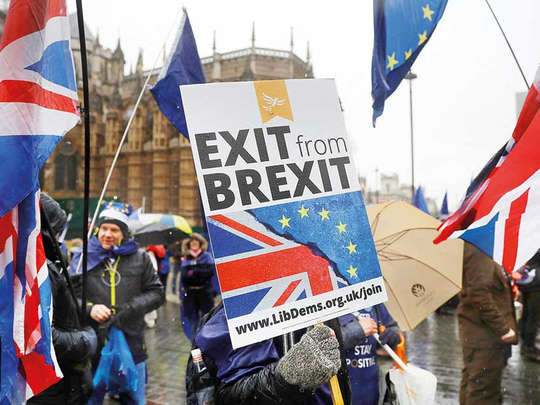
In 2016, voters decided that everything had to change. So it’s unsurprising that, in 2017, authors tried to work out what had brought this earthquake about — and what will come next. Politicians, diplomats, economists and journalists — all had a crack at it, but not all their books will stand the test of time. One that might is David Goodhart’s The Road to Somewhere (Penguin). His argument could just as easily apply to the United States or Europe, but the focus is Britain. Its central point is that instead of interpreting all politics through the lens of economic class, we need to take identity into account.
To that end, Goodhart invents a new framework, dividing voters into “somewheres” and “anywheres”. “Somewheres” are those, usually without university degrees, whose identity is tied to their family, their friends and the place where they’re from. Goodhart reckons they account for about half of Britain’s population. “Anywheres”, by contrast, are defined by their career, their ample education, their mobile and largely urban lifestyles. They account for about a quarter of the population, and the rest are a mix of the two groups.
In Where We Are (Bloomsbury), Roger Scruton, the philosopher, argues that we must revive pride in our national identity to bring the “somewheres” and “anywheres” back together. Only the nation state, he says, can create the sense of belonging we crave in a world of globalisation and technological change. Scruton does not fully explain why he thinks the continent of Europe, whose history is just as much one of empires and city-states, is most naturally suited to the nation state, and his anti-globalisation instincts seem at odds with some of his economic beliefs, but Where We Are is still a worthwhile description of how nationhood could help us regain a feeling of community, without sparking the surge in national chauvinism that EU supporters claim would result. A more practical guide to where Britain goes from here can be found in Clean Brexit (Biteback), by the economists Gerard Lyons and Liam Halligan.
They present a lucid argument for overhauling trade and regulatory policy after Brexit, to show how Britain could succeed if it embraces economic reform. It will please the optimists, but it won’t allay the fears of those focused on the risks.
For those keen to understand what drives EU institutions and the continent’s most powerful nation, Germany, two books stand out. The more valuable — and concise — is Berlin Rules (IB Tauris) by Paul Lever, the former British ambassador there. Lever makes no secret of his admiration for aspects of German society, but also applies a cynical eye to its policy decisions — and explains why Berlin is inclined to protect the EU project at all costs.
Adults in the Room (Bodley Head) by Yanis Varoufakis, the former Greek finance minister, gives a more anti-establishment perspective on how the EU works. His tendency to portray himself as a Hollywood hero speaking truth to power is a little annoying, but it’s a remarkable account of how Berlin and Brussels outfoxed Greece’s populist, Left-wing government. The most astonishing scenes come courtesy of Varoufakis’s secret wiretapping of meetings between Eurozone finance ministers, in which his proposals are sidelined because everyone has already invested too much political capital in the disaster of the euro.
Across the pond, there were several post mortems of the Trump phenomenon.
Only the most committed Hillary Clinton fans will want to wade through her What Happened (Simon & Schuster). More thrilling is Devil’s Bargain (Scribe) by Joshua Green, which charts the alliance between Donald Trump and his chief strategist, Steve Bannon, to its unravelling.
Three journalists — Matthew d’Ancona, James Ball and Evan Davis — wrote books called Post Truth, all tackling the epidemic of fake news and its implications for democracy. Ball’s (Biteback) is a structural analysis of the media; d’Ancona’s (Ebury) more philosophical. Davis’s (Little, Brown), the most optimistic, in the end affirms his belief that “good sense normally prevails” — but only after everything else has been tried.
–The Telegraph Group Limited, London 2017









